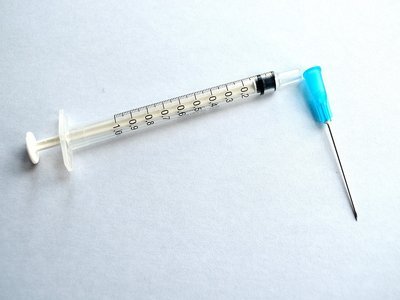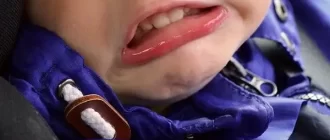As a parent, you always want to ensure the health and safety of your precious little one. One way to do this is by getting them vaccinated against various diseases. Chickenpox is one such illness that affects most children at some point in their lives. However, with the chickenpox vaccine, you can prevent your toddler from contracting this disease and save them from the discomfort and pain associated with it.
We’ll provide you with everything you need to know about the chickenpox vaccine for toddlers, its benefits, and potential side effects.
What is chickenpox and how is it spread?
Chickenpox is a contagious virus that causes an itchy rash of blisters and fever, and can be serious or even life-threatening, especially in babies, pregnant women, adults, and people with weakened immune systems. It spreads easily through close contact with infected individuals or their virus particles, and can start spreading from 1 to 2 days before the rash appears until all blisters have scabbed over. Vaccinating against chickenpox provides immunity without the risk of serious complications. [1][2]
Why is vaccinating toddlers against chickenpox important?
Vaccinating toddlers against chickenpox is important as it is a highly contagious disease and used to be very common in the US, causing hospitalizations and even deaths. Since the introduction of the vaccine in 1995, it has prevented millions of infections every year and is highly effective in preventing both severe and mild illness. Vaccinated toddlers who do get chickenpox generally have a mild case. It is recommended for all children under 13 years of age to receive two doses of the vaccine for optimal protection. [3][4]
How safe is the chickenpox vaccine for toddlers?
The chickenpox vaccine is considered a safe option for toddlers. According to the Centers for Disease Control and Prevention, most children don’t experience any side effects from the vaccine. The side effects that do occur are generally mild and include soreness, redness, and swelling where the shot was given, fever, and a mild rash. Severe reactions to the vaccine are rare. Parents should consult their child’s doctor if they have any concerns about the safety of the vaccine. [5][6]
What is the recommended vaccine schedule for toddlers?
The varicella vaccine is recommended for toddlers to protect them from chickenpox and shingles. The vaccine is given as a shot when children are between 12 and 15 months old, with a booster shot for further protection at 4 to 6 years of age. Children who are older than 6 but younger than 13 who have not had chickenpox or the vaccine should get the 2 doses given 3 months apart. Kids 13 years or older should get their 2 vaccine doses 1 to 2 months apart. Vaccination schedules are important to protect children from preventable diseases. [7][8]
What should parents expect after their toddler receives the chickenpox vaccine?
After receiving the chickenpox vaccine, parents can expect their toddler to experience mild side effects such as tenderness, redness, and fever. Some toddlers may even develop a mild rash, but it usually disappears without treatment. Parents should consult their doctor about using acetaminophen or ibuprofen to alleviate symptoms. Although rare, there is a small risk of febrile seizures after vaccination with the MMRV vaccine. It is important to monitor your child’s symptoms and contact their doctor if needed. [9][10]
Can toddlers still get chickenpox even after being vaccinated?
According to factual data, there is a possibility that toddlers who have been vaccinated against chickenpox may still contract the disease. This is called breakthrough chickenpox, but the symptoms are usually milder with fewer or no blisters and a shorter period of sickness. However, the risk of serious complications is greatly reduced in vaccinated children, making the vaccine highly recommended to protect against this contagious illness. [11][12]
How can parents prepare their toddler for the chickenpox vaccine appointment?
Parents can prepare their toddler for the chickenpox vaccine appointment by explaining what it is and why it’s important. They can use simple language and positive reinforcement to reassure their child and make them feel comfortable. It’s important to bring along a favorite toy or comfort item and offer support during the shot. Afterward, parents can offer praise and a small reward to reinforce good behavior. Dressing the child in comfortable clothing can also help ease any discomfort. [13][14]
About the Author
Reyus Mammadli is the author of this health blog since 2008. With a background in medical and biotechnical devices, he has over 15 years of experience working with medical literature and expert guidelines from WHO, CDC, Mayo Clinic, and others. His goal is to present clear, accurate health information for everyday readers — not as a substitute for medical advice.







